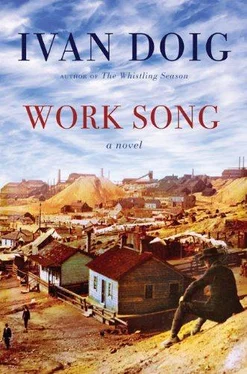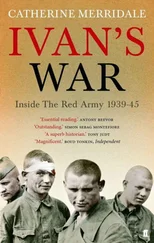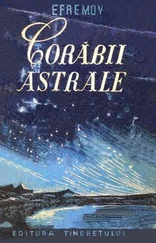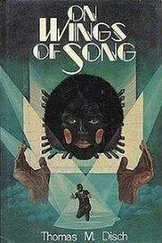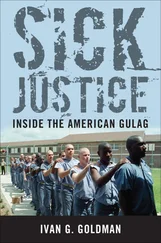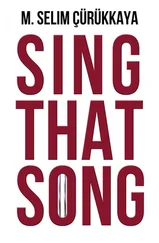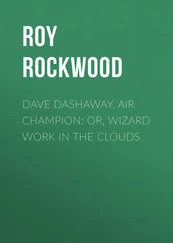“Since parades was invented.”
The brand-new work overalls on both of them looked stiff enough to creak, and underneath were the churchgoing white shirts and ties. Their headgear, though, was the distinctive part. Each wore a dingy dented helmet that must have seen hard duty in the mineshafts.
“Are you expecting a hailstorm?” I asked with a straight face.
Hoop proudly tapped his headpiece. “The Hill tried to knock my brains out any number of times, but nothing ever got past this lid. Anymore we only wear it the one day a year, don’t we, Griff.”
Telling me they had to form up early with the other marchers or spend the entire parade looking at hundreds of behinds, the pair hustled out while I waited for Grace to come down from her room. With the Hill not operating due to the holiday, a stillness had settled over the city, and the boardinghouse was in rare quiet. A silent room that is not your own tends to breed long thoughts. Around me now, the boardinghouse’s furnishings seemed to sit in arrested attitude, as if arranged in a villa in Pompeii. The mood of timeless deliberation drew me in and I became more aware than ever of the wedding photograph on the sideboard, where Arthur Faraday stared levelly at me. Something in that everlasting straight gaze reminded me of Casper, likewise gone too early from life and a bride who idolized him. Introspection is a rude visitor. An unsparing look into myself went to the heart, in more ways than one. I know myself fairly well: I am solo by nature. Incurably so, on the evidence thus far. But what a hard-eyed trick of fate-perhaps reflected in Arthur’s stare?-if I was destined, around women, always to be a stand-in for better men.
“Sorry to keep you waiting,” I heard Grace behind me, her footsteps quick on the stairs. “I had about forgotten how to dress up.”
I turned to look at her, and looked again. She had gone some, in Griff’s phrase for it. Her hair was done up in a crown braid, and atop that sat a broad-brimmed summer hat with a nice little swoop to it and a sprig of red ribbon. Her dress, attractively tailored to her compact form, was of a sea green with a shimmer to it. Even her complexion had a new glow, assisted by just enough rouge to give her cheeks a hint of blush.
“Very nice,” I fumbled out.
“You, too,” she managed.
With Arthur in the room, we stood there, shying away from further compliments, until she remembered to check the clock. “We should get a move on,” landlady back in her voice, “everyone turns out for the parade. I hope we can still find a place to see.”
“Spare yourself that worry,” I rallied. “I know just the spot.”
MAN, WOMAN, AND CHILD, the populace of Butte lined the downtown streets a dozen thick. I shouldered a way for us, Grace with a grip on the tail of my coat, to the block by the library. She looked dubious as I led her past people picnicking on the steps to the big arched doorway. “Isn’t the library closed for today?”
“Except to the privileged.” I displayed the key.
We slipped in, the ornate front door sweeping closed behind us. Inside the thick walls, the din of the outside world was shut out. The foyer, its Tuscan paneling and dark timbered beams as royal as ever, stood staidly empty. I glanced up to see whether Shakespeare winked at us as we passed through the Reading Room doorway, and he may have. Grace gazed around the elegant quiescent chamber with a trace of awe, and then at me. “Sam Sandison must trust you.”
“Mmm, I suspect he simply doesn’t want me to have any excuse day or night for not being in here doing all the things he piles on me to do.”
As we passed through the Reading Room, I could not help but stop for a minute and run my eyes over the mezzanine’s ranks of books, silent but eloquent. I was smitten every time by the finest collection west of Chicago, and to have its literary riches almost to myself this way seemed like a scene in a dream. Housed in their volumes, the souls of writers waited in this great room to come out into the light of day. I would not have been surprised right then if Joseph Conrad materialized at the railing like a stalwart first mate on the deck watch, or Emily Dickinson came tiptoeing out of the shelves to peer down to the unattainable life below.
“My. It’s so different in here without anyone around, isn’t it.”
“Grace, you needn’t whisper.”
“Oh, right.” She trilled a laugh in relief. “If you promise not to shush me.”
A last lingering moment, I gazed at the varicolored bindings as a person would cast a final glance at the jeweled colors of a cathedral window. Then I motioned Grace to the stairway, but she stayed as she was, studying me. “This is the love of your life, isn’t it. What’s in these books.”
“I suppose it is,” I conceded. “As the phrase goes, for better and for worse.”
OFF THE CORRIDOR to Sandison’s office was a small balcony, like a flex in the stonework over the main entrance’s keystone arch, and the parade coming down Broadway would pass practically beneath us. Grace went straight to the balustrade and took a full look around, adjusting the swoop of her hat to keep the sun out of her eyes. Smiling her best, she plucked at the cuff of my suitcoat. “This is such a treat, you devil.”
The rising roar from the street announced that things were under way. The copper capital of the known world knew how to stage a spectacle. Everything in shoes walked in the parade. The lodges-Masons, Elks, Templars, Odd Fellows, you name it-all of them sashed, some plumed. The firemen, prideful of their new hook-and-ladder Ford. The suffragists, resolute with their signs championing the correction to the Constitution that would give women the vote. The trade unions, and in Butte that was every trade; bakers, tailors, cooks, carpenters, even blacksmiths went by with their banners in the breeze. Most groups were led by a drum, the boom of march step resounding off the buildings. Then behind those marchers came the big horses, the brass of their harnesses gleaming, pulling delivery vans of every sort, and other horse-drawn conveyances polished up for the occasion. A traveling carnival, calliope and all, rolled past in gold-spoked wagons; a stiltwalker ambulated by nearly at eye level with us. The next group on wheels were putt-putting automobiles with dignitaries trying to maintain dignity in the herkyjerky progress.
Eventually, more pedestrianly, came contingents of schoolchildren. Rab, gaily dressed, went by in charge of a flock of beribboned girls representing her school. She spotted me, waved, and blew me a kiss. Grace looked at me with a slightly raised eyebrow. “She must have been quite something as a girl.”
By now the Miners Day processional had gone on for a considerable time, and I leaned out to see how much more there could possibly be. “Good heavens!” was all I could say.
Bearing down on us was what looked like an army of toy soldiers magnified to heroic size. Each marching man wore a uniform of emerald green with gold-thread embossing across the chest and down the sleeves, and their cap visors were set identically low to their brows. The mix of gaudy uniforms and shiny musical instruments suggested an orchestra conscripted onto the stage of an operetta. As the marching mass neared the library, its leader spun in his tracks and, walking backward, lifted his arms. Instantly instruments sprang to lips, and at his signal, a Sousa march roared to life. Sun glinted off a tuba, the extensions of trombones, the squadron of cornets. The bass drums produced a beat that could be felt on the body.
“The Miners’ Band,” Grace managed to make herself heard into my ear. “They’re nationally known. Not for lullabies, as you might guess.”
And in the wake of the powerful music, here came the miners in their hundreds and hundreds, beneath a forest of banners with the union council proudly at the front. Leading them with his level stride was Jared Evans, in suit and tie and a snappy hat that might as well have been a crown. With his triumph in the wage battle, he was the hero of the day; Caesar coming home to Rome after victory could have received no greater tribute from the crowd. Grace and I added our cheers. The banners dipped and rose and swirled in back of Jared and the other council members, where the ranks of men who worked in the mineshafts stretched for blocks, each national group distinct to itself as I had seen them that first day on the Hill, but now scrubbed and tidied and in their best clothing. We strained to see, and tucked in between the Finns and the Serbs were the retired miners, with Griffith and Hooper and dozens of stooped replicas all in their vintage helmets.
Читать дальше
